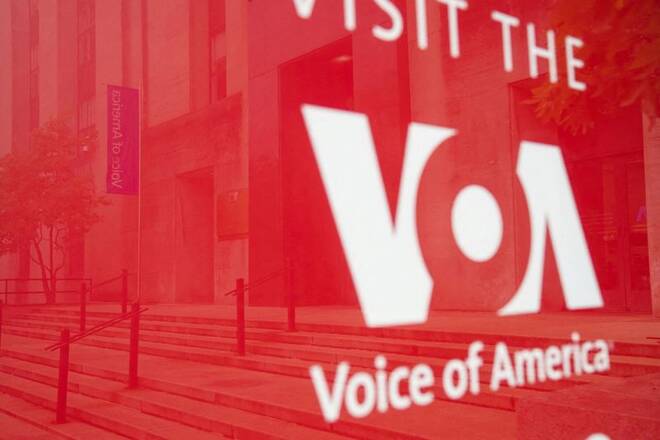Advertisement
Advertisement
Turkey blocks access to Deutsche Welle, Voice of America for not getting licenses -official
By:
ANKARA (Reuters) - Turkey's RTUK media watchdog has blocked access to U.S.-based Voice of America and German broadcaster Deutsche Welle for not applying for the licenses it requests, a member of the watchdog said on Thursday.
ANKARA (Reuters) – Turkey’s RTUK media watchdog has blocked access to U.S.-based Voice of America and German broadcaster Deutsche Welle for not applying for the licenses it requests, a member of the watchdog said on Thursday.
In February, Deutsche Welle and Voice of America (VOA) said they would not apply for licences in Turkey as requested by RTUK under the country’s media regulation law, which critics say aims to increase censorship.
Ilhan Tasci, an RTUK board member from the main opposition CHP, said on Twitter that access to Deutsche Welle’s Turkish-language service, DW Turkce, and VOA had been blocked by a court decision.
“Access to DW Turkce and Voice of America, which did not apply for licenses, has been blocked by the Ankara Criminal Court of Peace, upon the request of the RTUK board,” Tasci said.
“Here is your freedom of press and advanced democracy!” he added.
The vast majority of Turkey’s mainstream media outlets are seen as close to the government, with coverage favouring President Tayyip Erdogan and his allies. Turks have increasingly resorted to alternative outlets, some foreign-owned, and social media for news.
RTUK, whose policymaking board is dominated by Erdogan’s AK party and its allies, frequently fines broadcasters that are critical of the government.
The debate on a draft bill on media laws that was dubbed “censorship bill” by critics was postponed until parliament reopens in autumn, an AKP deputy, Mahir Unal, said this week.
Turkey is also among the top jailers of journalists globally and has frequently been criticised by Western allies and rights groups over its human rights record. They have also accused the Erdogan government of using a failed military coup in 2016 as a pretext to muzzle dissent.
The government denies this and says the measures it takes are necessary due to the gravity of the threats Turkey faces.
(Reporting by Tuvan Gumrukcu in Ankara; Editing by Matthew Lewis)
About the Author
Reuterscontributor
Reuters, the news and media division of Thomson Reuters, is the world’s largest international multimedia news provider reaching more than one billion people every day. Reuters provides trusted business, financial, national, and international news to professionals via Thomson Reuters desktops, the world's media organizations, and directly to consumers at Reuters.com and via Reuters TV. Learn more about Thomson Reuters products:
Advertisement
